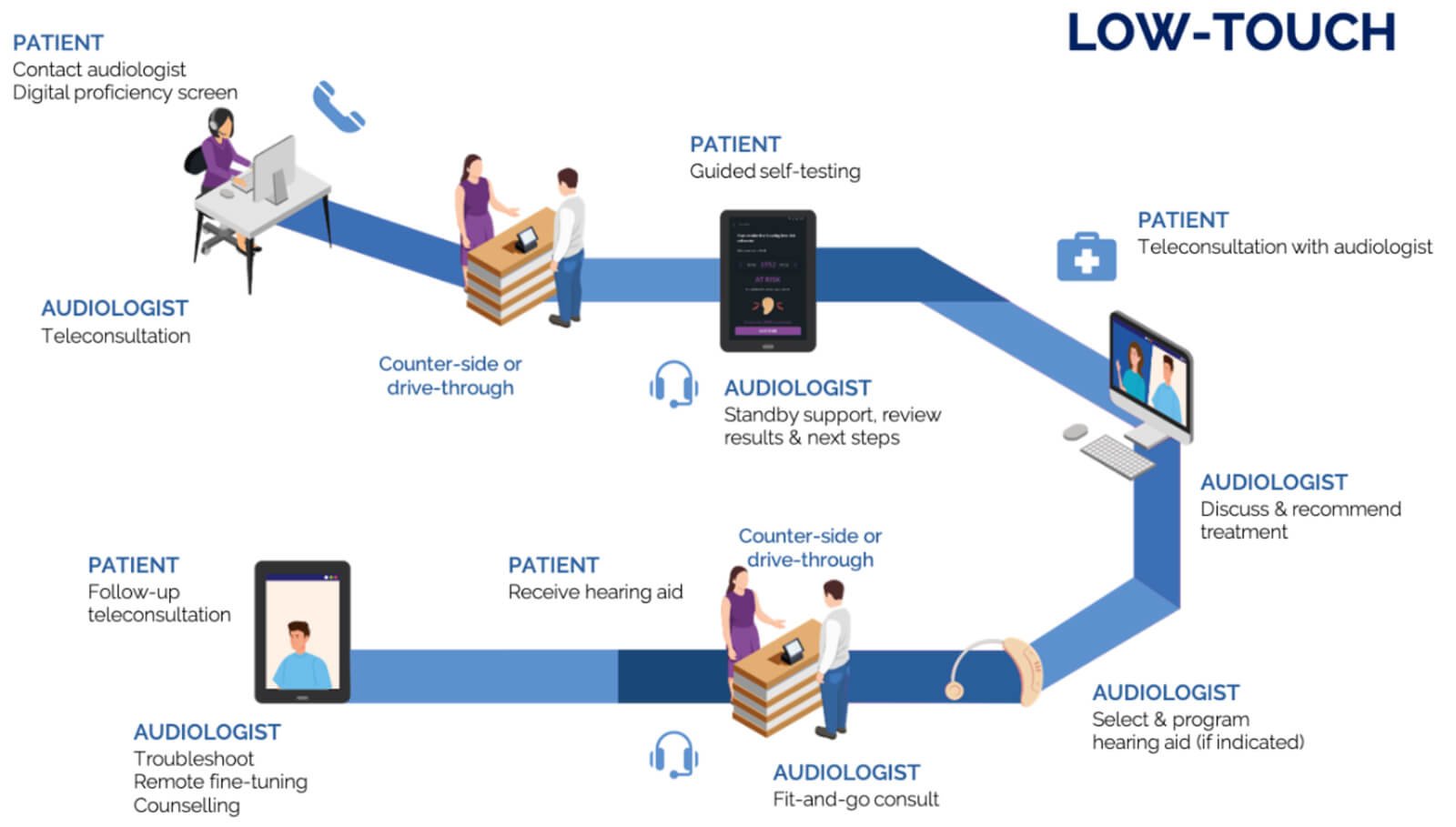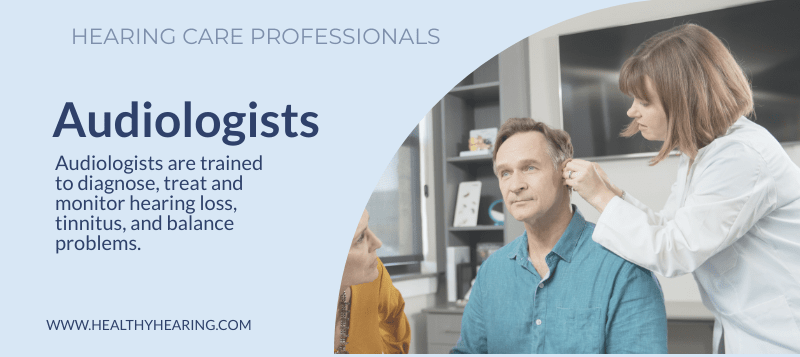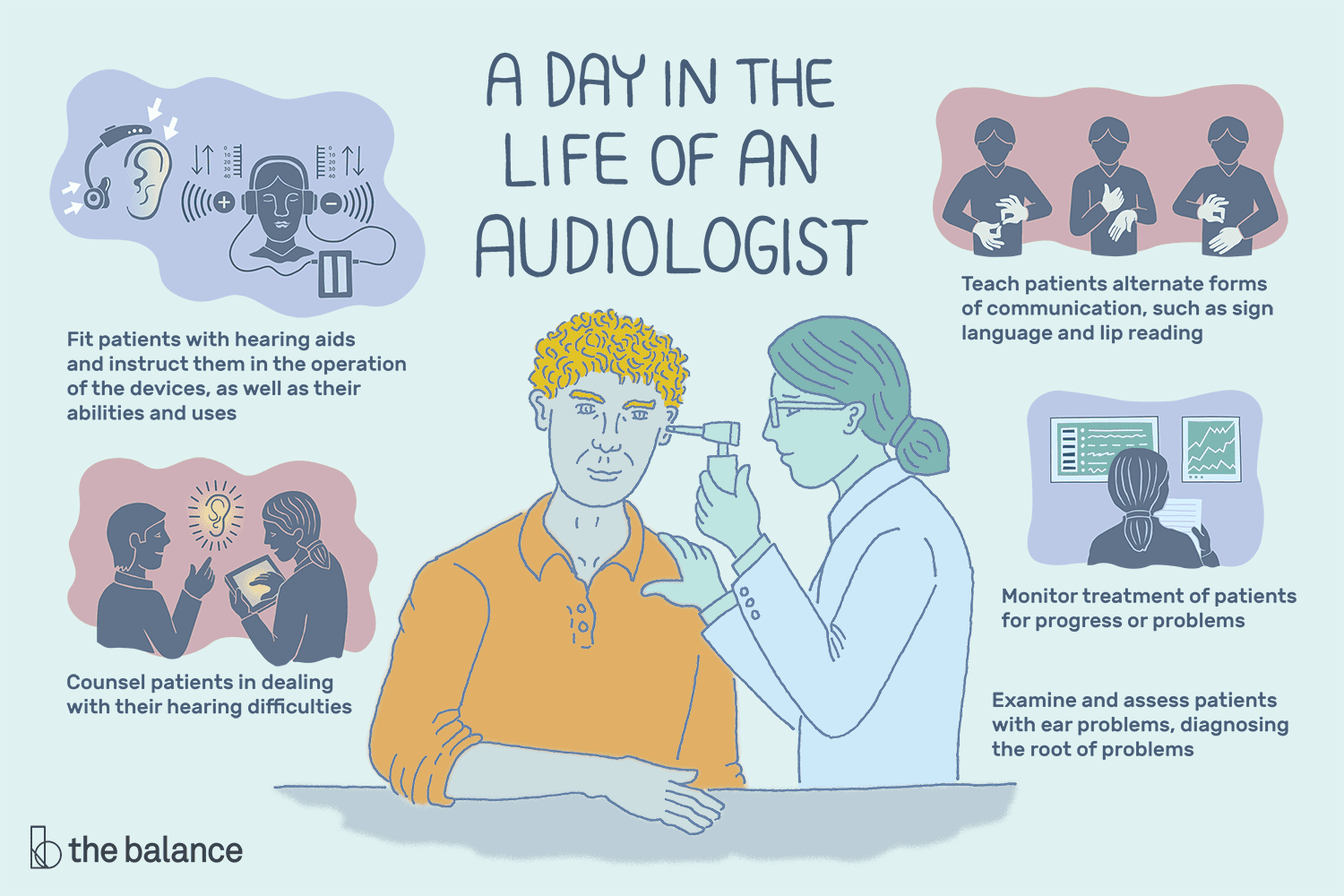If you have ever been fascinated by the science of sound and its impact on human communication, then pursuing a career as an audiologist might be the perfect fit for you. As a highly specialized healthcare professional, audiologists play a crucial role in diagnosing and treating individuals with hearing and balance disorders. In this article, we will explore the steps required to embark on the journey of becoming an audiologist, with a particular focus on students aspiring to pursue this rewarding career in the United States. From earning a bachelor’s degree to completing a doctorate program, each step is an important milestone in your path towards becoming a skilled and compassionate audiologist. So, let’s begin our exploration into this dynamic and fulfilling profession.

This image is property of www.entandaudiologynews.com.
Steps to Becoming an Audiologist
If you’re interested in pursuing a career as an audiologist in the United States, there are several important steps to take to achieve your goal. From obtaining the necessary education and training to gaining clinical experience and obtaining licensure, each step is crucial in developing the skills and knowledge required to excel in this field. Let’s explore each step in detail to help you on your journey to becoming an audiologist.
Education and Training
Obtain a Bachelor’s Degree
The first step in becoming an audiologist is to obtain a bachelor’s degree. While there isn’t a specific major required for admission into audiology programs, it is recommended to pursue a degree in a field related to communication sciences and disorders, such as speech-language pathology or hearing sciences. This undergraduate education will provide you with the foundational knowledge needed to pursue further education in audiology.
Complete a Doctor of Audiology (Au.D.) Program
After earning a bachelor’s degree, the next step is to complete a Doctor of Audiology (Au.D.) program. This program is typically three to four years in duration and focuses on the study of audiology, including topics such as anatomy and physiology of the auditory system, hearing science, assessment and diagnosis of hearing disorders, and rehabilitation techniques. It is important to choose an accredited Au.D. program to ensure the quality of education and eligibility for licensure.
Participate in Clinical Rotations
During your Au.D. program, you will have the opportunity to participate in clinical rotations. These rotations provide hands-on experience in a variety of clinical settings, allowing you to apply the knowledge and skills learned in the classroom to real-life situations. Clinical rotations may include working with patients of different age groups, conducting assessments, fitting hearing aids, and providing counseling to individuals with hearing disorders.

This image is property of images.ctfassets.net.
Licensure and Certification
Obtain State Licensure
To practice as an audiologist in the United States, you must obtain state licensure. Licensure requirements vary by state, but generally, they include completing a doctoral degree from an accredited program, passing a national examination, and fulfilling any additional state-specific requirements. It is essential to research the licensure requirements of the state in which you plan to practice and ensure that you meet all the necessary criteria.
Consider Certification
While certification is not mandatory for licensure, it is highly recommended to enhance your professional credibility and demonstrate your commitment to the field. The American Board of Audiology (ABA) offers the Certificate of Clinical Competence in Audiology (CCC-A), which is widely recognized in the audiology profession. To obtain the CCC-A, you must pass a rigorous examination that assesses your knowledge and clinical skills in audiology.
Gaining Clinical Experience
Apply for an Audiologist Externship
After completing your Au.D. program and obtaining licensure, it is beneficial to gain further clinical experience through an audiology externship. Externships provide an opportunity to work under the supervision of experienced audiologists in various clinical settings, such as hospitals, private practices, or educational institutions. This hands-on experience further enhances your practical skills, confidence, and understanding of different patient populations and disorders.
Complete a Fellowship
For those who wish to specialize in a specific area of audiology or gain advanced training, completing a fellowship is an excellent option. Fellowships are usually one to two years in duration and focus on a specialized area, such as pediatric audiology, cochlear implants, or tinnitus management. These programs provide in-depth training and mentorship, allowing you to develop specialized skills and knowledge.

This image is property of www.healthyhearing.com.
Continuing Education
Stay Current with Professional Development
As in any healthcare profession, it is crucial to stay up to date with the latest research, technologies, and advancements in audiology. Continuing education opportunities, such as workshops, conferences, and online courses, allow you to expand your knowledge base and learn about emerging trends and evidence-based practices. By engaging in continuous professional development, you can provide the best possible care to your patients and stay at the forefront of the field.
Pursue Advanced Specializations
In addition to staying current with general professional development, pursuing advanced specializations can further enhance your expertise and career opportunities. Specializations can include areas such as vestibular assessment and rehabilitation, auditory processing disorders, or geriatric audiology. By gaining expertise in a specific area, you can provide specialized care to a specific patient population and potentially open doors to research or teaching opportunities.
Getting Involved in Professional Organizations
Join National and State Associations
Joining national and state audiology associations is a valuable way to connect with fellow professionals, stay informed about industry updates, and advocate for the profession. Membership in organizations such as the American Academy of Audiology (AAA) and state audiology associations provides access to resources, networking opportunities, and continuing education opportunities. Additionally, these associations often offer mentorship programs and scholarships for students and early-career audiologists.
Attend Conferences and Workshops
Attending conferences and workshops is an essential part of professional development and staying engaged with the audiology community. These events offer a platform to learn from experts, listen to research presentations, and network with professionals from various backgrounds. Conferences and workshops provide opportunities to broaden your knowledge, gain new perspectives, and establish professional connections that can benefit your career.

This image is property of www.wikihow.com.
Developing Essential Skills
Improve Communication and Interpersonal Skills
As an audiologist, effective communication and interpersonal skills are essential for building rapport with patients, their families, and other healthcare professionals. Developing active listening skills, empathy, and the ability to convey complex information in an accessible manner are critical in providing patient-centered care. Practice and feedback from supervisors and mentors can help you refine these skills and ensure a positive patient experience.
Enhance Problem-Solving Abilities
Audiologists often encounter complex diagnostic and treatment challenges, requiring strong problem-solving abilities. Enhancing your critical thinking skills and developing a systematic approach to problem-solving can greatly facilitate your ability to assess and manage various hearing and balance disorders. Engaging in case studies, collaborating with colleagues, and seeking mentorship will help you sharpen your problem-solving skills.
Develop Empathy and Compassion
Empathy and compassion are essential qualities for any healthcare professional, including audiologists. Patients with hearing and balance disorders often face emotional and social challenges, and being able to provide support and understanding is integral to their well-being. Developing and nurturing empathy and compassion through training, self-reflection, and interactions with patients can help you create a supportive environment where patients feel heard and valued.
Building Relevant Knowledge
Study Anatomy and Physiology
A thorough understanding of the anatomy and physiology of the auditory system is foundational to audiology practice. Studying the intricate structures of the ear, the functions of different components, and the neural pathways involved in auditory perception will equip you with the knowledge necessary to assess and treat hearing disorders effectively. Advanced coursework or additional certifications in anatomy and physiology can further expand your expertise.
Learn about Hearing and Balance Disorders
Audiologists work with patients experiencing a wide range of hearing and balance disorders. Acquiring in-depth knowledge about various conditions, such as sensorineural hearing loss, tinnitus, vestibular disorders, and auditory processing disorders, is crucial. Understanding the etiology, diagnostic methods, and treatment options for these disorders allows you to address patients’ concerns comprehensively and develop appropriate management plans.
Understand Audiological Assessment and Rehabilitation Techniques
Proficiency in performing audiological assessments and providing rehabilitation services is a fundamental aspect of audiology practice. Learning about different assessment techniques, such as pure-tone audiometry, speech audiometry, and otoacoustic emissions, will enable you to evaluate and diagnose hearing disorders accurately. Similarly, gaining proficiency in hearing aid fitting, auditory training, and counseling techniques will help you provide effective rehabilitation services to patients.

This image is property of www.liveabout.com.
Seeking Employment Opportunities
Consider Different Work Settings
Audiologists have the opportunity to work in various healthcare settings, including hospitals, clinics, universities, research centers, and private practices. Consider your interests, career goals, and preferred patient populations when exploring different work settings. Each setting offers unique advantages and challenges, allowing you to tailor your career to your specific interests and professional aspirations.
Apply for Licensure and Certification in Targeted States
If you plan to practice in a specific state, it is essential to research and apply for licensure and certification in that state. Each state has its own requirements for licensure, and ensuring that your credentials align with those requirements will streamline the application process. Additionally, obtaining certification through the American Board of Audiology can further demonstrate your commitment to excellence and strengthen your candidacy for employment.
Prepare a Strong Resume and Cover Letter
When applying for positions as an audiologist, it is crucial to prepare a strong resume and cover letter that highlight your education, clinical experience, and any specialized skills or certifications. Tailor your resume to each specific job opportunity by emphasizing relevant coursework, clinical rotations, and research or presentation experience. Your cover letter should articulate your passion for audiology and how your skills align with the specific needs of the employer.
Growing Professionally in the Field
Pursue Advanced Degrees or Specializations
For audiologists who aspire to advance their careers further, pursuing advanced degrees or specializations can open doors to leadership, research, and teaching opportunities. Doctoral degrees beyond the Au.D., such as a Ph.D. in Audiology or a related field, can provide a deeper understanding of audiological research methodologies and facilitate your involvement in academic or research positions. Specializations in niche areas of audiology, such as cochlear implants or pediatric audiology, offer opportunities for advanced practice and specialization.
Engage in Research and Publications
Contributing to audiological research and publications is a valuable way to further advance the field and establish yourself as an expert. Engage in research projects during your academic training, and continue to pursue research opportunities throughout your career. Research can lead to presentations at conferences and publications in peer-reviewed journals, enhancing your professional reputation and fostering collaboration with other researchers and clinicians.
Explore Leadership and Advocacy Roles
As an experienced audiologist, you have the potential to make an impact beyond direct patient care by assuming leadership and advocacy roles. Joining professional committees, serving on boards, or volunteering for organizations focused on improving audiological care and access can help shape the future of the profession. Becoming an advocate for audiology by promoting awareness and advocating for policies that support patient rights and professional standards can contribute to the growth and advancement of the field.
Becoming an audiologist requires dedication, commitment, and a lifelong passion for improving the lives of individuals with hearing and balance disorders. By following these steps and continually investing in your professional growth and development, you can embark on a rewarding career that combines science, patient care, and advocacy. Remember, each step is an important part of the journey, and you have the potential to make a significant impact in the field of audiology.